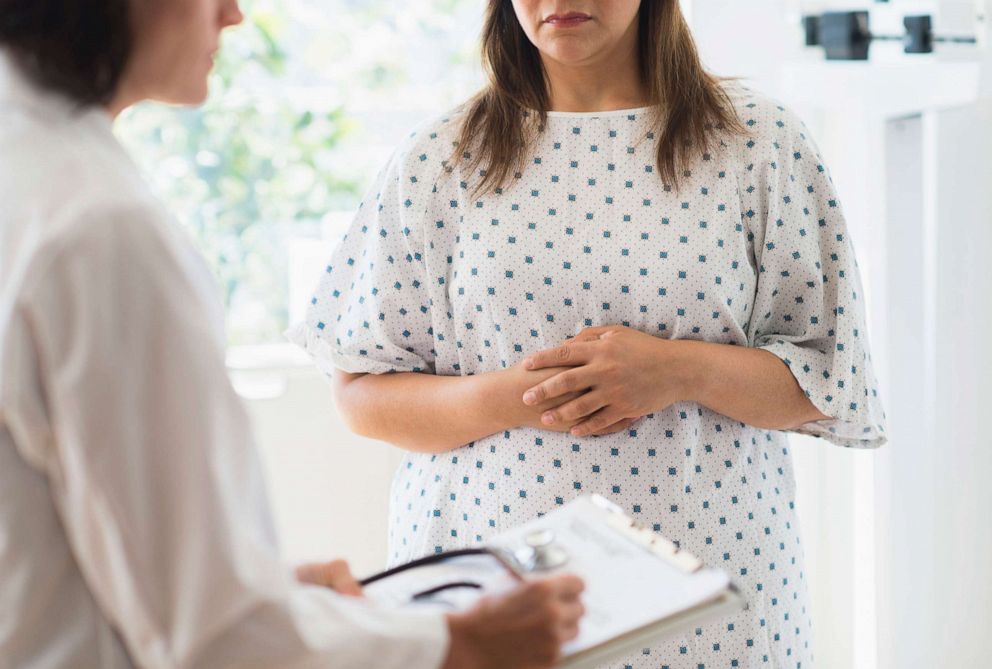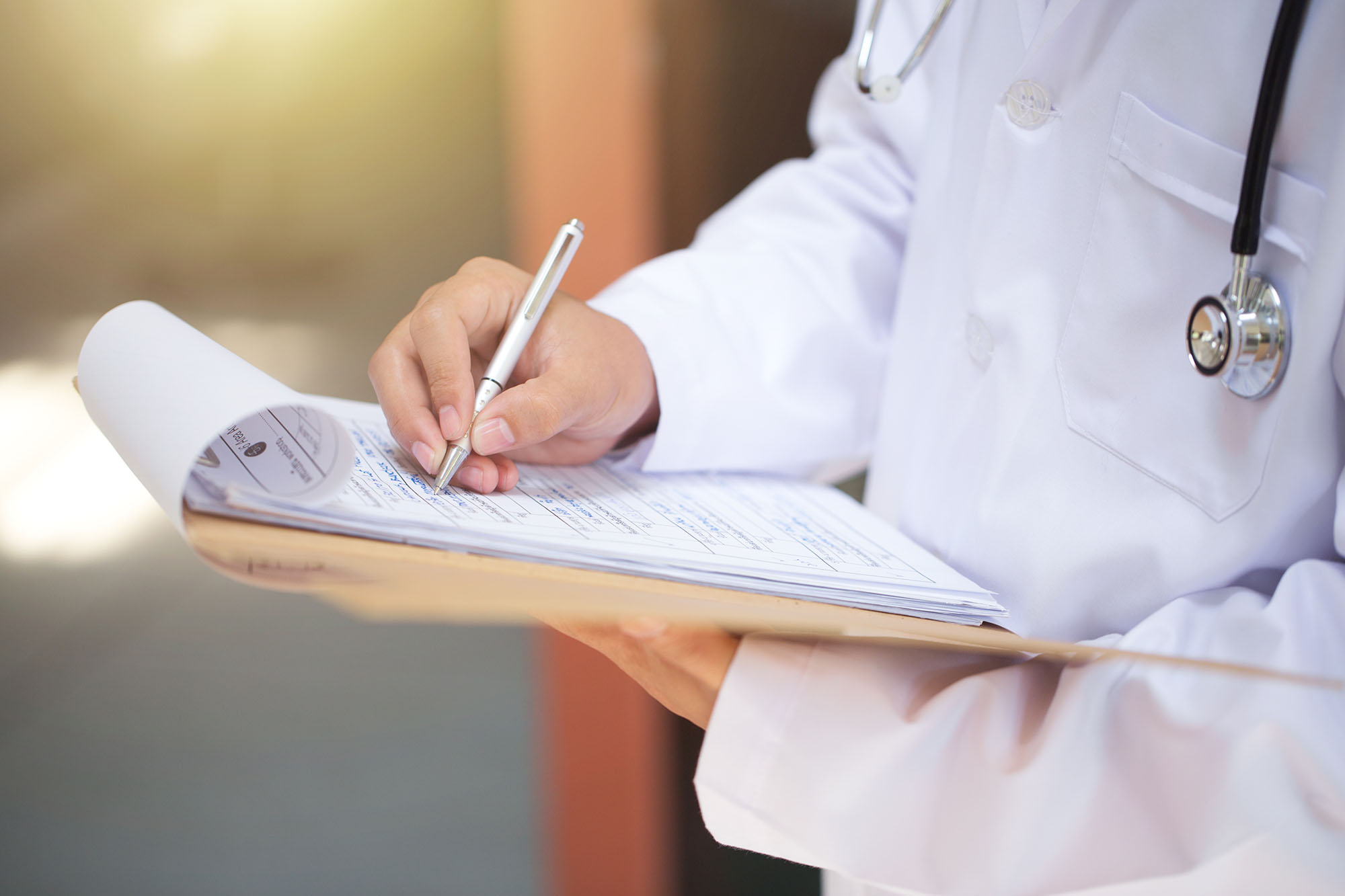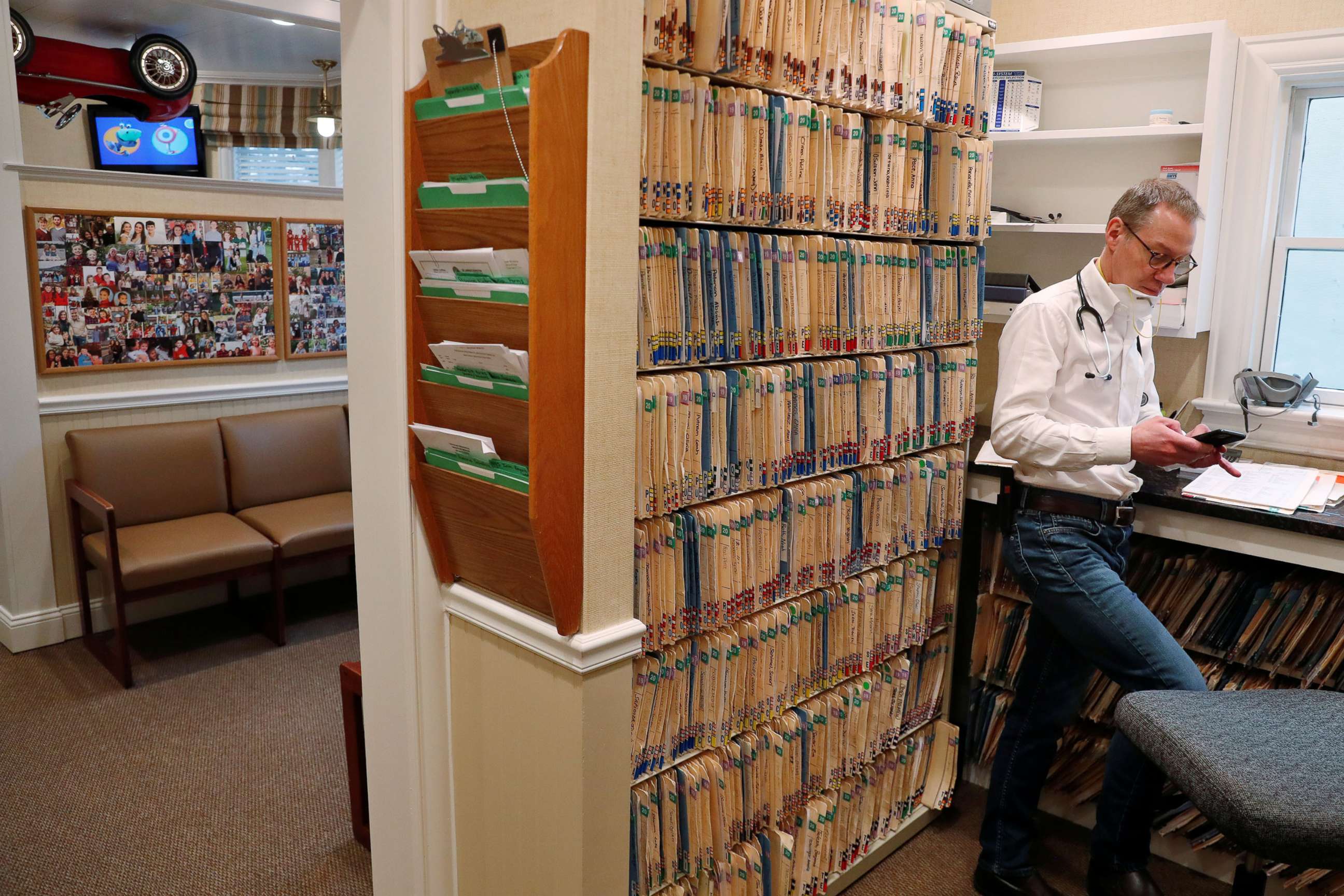Dramatic drop in cancer diagnoses amid COVID pandemic is cause for concern, doctors say
Experts fear concerns over coronavirus has led to far too few screenings.
At the onset of the novel coronavirus, American healthcare providers sought to limit non-essential in-person visits, opting instead to put off routine examinations – including annual cancer screenings – as part of an effort to curb risky face-to-face interactions.
This precautionary approach was endorsed by the American Cancer Society, among others, and widely accepted as a necessary preventative measure.
But as weeks have now turned to months, doctors are registering a troubling trend: a precipitous drop in cancer diagnoses. Some experts fear that with each passing day, the prognosis for some of those undiagnosed cases may be getting worse as potential patients huddle at home.
“My level of concern is up with the eight or nine level [on a scale to 10],” said Dr. J. Leonard Lichtenfeld, deputy chief medical officer at the American Cancer Society, referring to patients who might be showing cancer-related symptoms but defer medical care for fear of contracting the coronavirus at a healthcare facility.

At the University of Pennsylvania Health System, for example, the number of new skin cancers diagnosed by dermatopathologists was down around 80% in March from early February, according to data shared with ABC News. The data reflect a decrease in both invasive melanomas, the most deadly form of skin cancer, and other more common types of skin cancer.
“It is important that melanoma in particular is diagnosed as early as possible, since the survival rate drops significantly once it spreads to other parts of the body,” said Dr. Carrie Kovarik, a dermatologist at the University of Pennsylvania.
Other cancer treatment centers have noticed decreases in the number of new cancer patients in recent months, too. The University of Nebraska Medical Center has seen their weekly volume of new cancer patients roughly cut in half over the past month. Mount Sinai’s Tisch Cancer Center in New York has also recorded a 30-50% drop in new cancer patients.
Those figures make up only a fraction of the national whole, but taken together, they could illustrate a broader trend, as the drop in diagnoses follows logically from the drop in screenings, doctors said: fewer tests mean fewer results.
Earlier this year, as the coronavirus trickled into the U.S., the American Cancer Society issued a bulletin suggesting that non-essential cancer screenings be postponed. In recent weeks, as some states have loosened stay-at-home orders, the ACS has encouraged patients to gauge whether it is safe to get screened on a case-by-case basis.

“What I know is that there are fewer people walking through the doors, so you certainly are seeing fewer new patients coming through the doors,” said Dr. David Cohn, chief medical officer at The Ohio State University Comprehensive Cancer Center.
As a result, preventative cervical, colon, and breast cancer screenings nationwide suffered an 86-94% drop, according to an analysis by the Epic Health Research Network, the healthcare IT and records giant.
“If the trend continues, the data suggest that many cancer cases could go undiagnosed or be diagnosed at a later stage with a poorer prognosis,” according to the Epic analysis.
Others have downplayed the life-and-death implications, instead predicting logistical challenges for an already shaky healthcare infrastructure in anticipation of an influx of new patients – but not lethal consequences.
“It has not been my sense that there is going to be a bump up in cancer mortality because of COVID,” said Dr. John Glaspy, an oncologist at UCLA. Rather, he said, “there’s going to be a bump up in work load in a month or two.”
Regardless, experts agree that cancer screenings cannot be delayed forever. In time, doctors said, those non-essential in-person screenings may become essential.
“Oncology has always been about balancing risks and benefits, and the COVID situation has increased the risk side of getting treatment a tiny bit, not a lot,” Glaspy said. “So what people can and should do is recalibrate their risk-benefit analysis.”

Telemedicine may be the future, but ‘not ideal’ for cancer screening
Telemedicine, the practice of doctors and nurses "seeing" their patients through phone calls or video conferences, is having a moment. With insurers now buying in and Americans more willing than ever to seek out virtual consultations, access to remote healthcare is largely seen by medical professionals as a silver lining in the pandemic.
But that poses a problem for screening new cancer patients. Doctors posit that cancer diagnoses often start with the primary care physician, who often “remind patients they need to get screened” for cancer, Lichtenfeld said. With in-person check-ups now limited due to coronavirus safety concerns, it follows that fewer cases can be found.
And while telemedicine has been crucial in weeding out non-essential patient visits and prioritizing the potential positive coronavirus cases, for cancer screenings, virtual care has limitations. Doctors say in-person interactions are key to picking up on the subtleties of screening.
“Telemedicine is not ideal for cancer screenings,” said Dr. Carrie Kovarik, a dermatologist at the University of Pennsylvania. “We know that we catch things in the office that people did not come in for.”
Lichtenfeld put a finer point on the matter: “You can't screen for cancer over telemedicine.”
Not all cancers are created equal
The implications of delayed cancer diagnoses vary based on several factors, Lichtenfeld said. “The different cancers have different scenarios depending on different circumstances," he said.
Each patient’s standard of risk “is based on a complex equation” that includes family history and prior health profile, added Cohn, from Ohio State.
For many types of cancer in the average patient, doctors said, a delay in screening or treatment most likely would not have dire consequences. Lichtenfeld suggested that in most types of breast cancer, “we wouldn't expect to see a substantial change in outcomes if a mammogram was delayed.”
“The same thing with colorectal cancer screening,” he continued. “Many people get a colonoscopy … every 10 years. So if they're due now at this particular moment, the chance of harm as a result of waiting several months is unlikely to be significant harm.”
For other types of cancer, however, even a short holdup in treatment could have a damaging effect on a patient’s prognosis. Some types of breast cancer known as inflammatory breast cancer can be more aggressive, making it “more imperative for a timely diagnosis,” according to Dr. Noah Lindenberg, an oncologist in Marlton, New Jersey.
“Acute leukemia doesn't wait, patients with certain lymphomas don't wait, and they need to be treated,” Lichtenfeld said. “A two or three month delay for a woman with ovarian cancer could be a significant difference.”
While some cases may be time sensitive, doctors largely question if the risks are great with temporary delays for most routine screenings. At the same time, however, doctors stressed that any perceptible, physical sign should be addressed promptly. A lump in the breast or a changing spot on the skin, for example, could be a cancer.
“If it’s a physical finding or it’s a symptom that’s changing that is worrisome to the patient that is certainly a trigger that someone should seek medical care,” Cohn said.
What to know about the coronavirus:
- How it started and how to protect yourself: Coronavirus explained
- What to do if you have symptoms: Coronavirus symptoms
- Tracking the spread in the U.S. and worldwide: Coronavirus map




